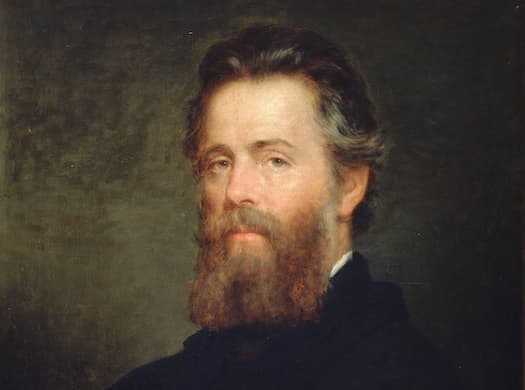Melville by the Day
I cannot think of another work of fiction that says more about why biographies are written and what they portend than Chris Bachelder and Jennifer Habel’s ‘Dayswork: A Novel.’

‘Dayswork: A Novel’
By Chris Bachelder and Jennifer Habel
W.W. Norton & Company, 240 pages
This original, learned, and droll novel is as much about biography and biographers as it is about marriage, literature during a pandemic, the hazards and rewards of research — and Herman Melville.
The narrator is sorting through Melville biographies, compiling lists of dates, locations where her subject lived, meditating on his personality at different periods while comparing all this data to the diurnal life of her own marriage, as her husband quarantines himself in their basement after suffering exposure to a Covid outbreak.
She is constantly returning to the indefatigable discoveries of “the biographer,” named relatively late in the narrative as Hershel Parker, author of a mammoth two-volume Melville biography. The biographer has been immersed for much of his career in working up to the point when he can display all he has learned in 2,000 pages of narrative and analysis.
Full disclosure: I know Hershel Parker, and just how obsessive and certain he is about his discoveries. In the Wall Street Journal, I reviewed his book, “Melville Biography,” in which he takes to task many of his contemporaries, including me, for what they get wrong about Melville while also providing an unsurpassed account of how biographers work in archives and assemble their narratives.
The narrator of “Dayswork” is beholden to “the biographer,” as all of us Melvillians are, but she cannot help having fun with his certitudes and with the way “the biographer” exceeds his authority.
My favorite passage in “Dayswork” occurs when the narrator is arrested by the biographer’s identification of the happiest day in his subject’s life: presenting a copy of “Moby Dick” to his esteemed friend Nathaniel Hawthorne.
“The claim seems dubious,” she observes, “but last night I couldn’t figure out if the problem lies in the selection of this particular day out of all of Melville’s many days, or if it lies in the presumption to assess the happiest day in the life of someone else, particularly someone so mysterious and dead, or if it lies in the potential confusion of happiest with other superlatives such as most content or most consequential or most memorable, or if it lies in the belief in the very concept of a happiest day of a life.”
The word “presumption” leaps out as I am reminded that Boswell said biography is a “presumptuous task.” Here the problem of biography is complicated by the narrator’s musings: “I lay awake, thinking of some of the happy days of my life, but the thought that any one of them might be the happiest day of my life I found unhappy.”
Also, as a wife who from time to time divagates on her husband’s strengths and weaknesses, she goes on: “Of course I didn’t like the idea that on the happiest day of Melville’s life, his wife was at home nursing their newborn son despite suffering from a breast infection so painful the walls in her room had been draped with sheets because the pattern of the wallpaper made her dizzy.”
The implication is that the husband’s happiness is sustainable only by ignoring the wife’s plight — as was the case with Robert Lowell, who has a major role to play in this novel as the narrator dissects his horrendous treatment of his ever-faithful wife Elizabeth Hardwick, whose own temperament is also on display in the narrator’s tender treatment of Hardwick’s Melville biography.
It does not spoil a first reading of the novel to report that it ends with a magnificent tribute to Melville’s wife Elizabeth, who stood by him, even when he turned violent — how violent the narrator, like all Melville biographers, cannot say, but there are indications, shall we say, of wife abuse.
It would be presumptuous to say there would be no Melville without his wife, but the force of his rediscovery in the 1920s, the narrator insists, could not have been possible without her strenuous efforts to keep the memory of her husband and his work alive.
I cannot think of another work of fiction that says more about why biographies are written and what they portend, or how the lives of biographers get enmeshed in their subjects, and all told as if you, the reader, are part of the day’s work.
Mr. Rollyson and his wife, Lisa Paddock, are the authors of “Herman Melville A to Z.”

